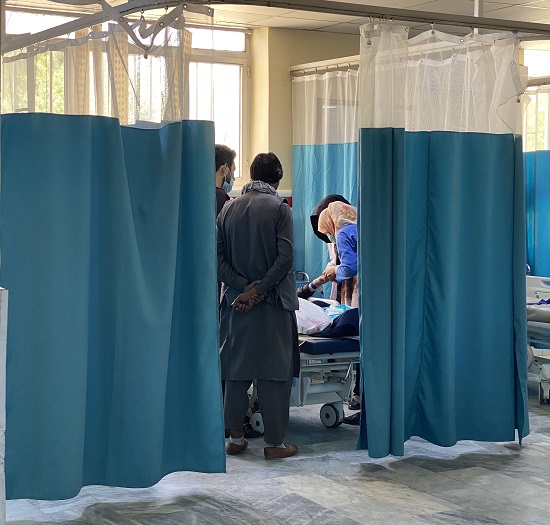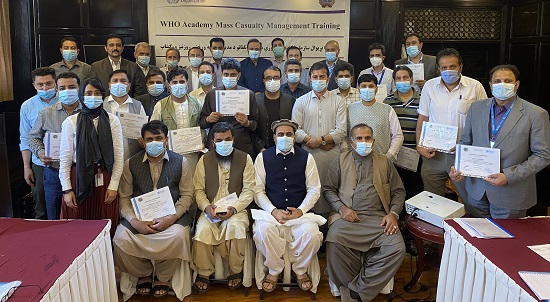
22 June 2021 – WHO has trained trauma specialists from 5 of the major hospitals across Afghanistan as part of its efforts to strengthen mass casualty management in the country. The 5-day training is the first step towards building a coherent trauma care system that aligns the knowledge and skills of Afghani doctors and nurses with international best practice and standards.
Trauma is a major significant public health concern in Afghanistan. Every day, at least 8 civilians die and 17 more are injured as a result of trauma events. In 2020 alone, over 3000 civilians died from conflict-related trauma. Children also account for a large number of trauma victims, with blast injuries accounting for most injuries suffered by children in Afghanistan.
WHO is upscaling its trauma care programme to deliver a coherent and consistent patient-centred approach that aims to reduce avoidable death and disability by strengthening each part of the trauma referral pathway. Over the course of the training, WHO trauma experts worked with doctors and nurses to review and update their mass casualty management plans and lay out practical steps for improving the approach to mass casualty in each of the regions: Kabul, Herat, Jalalabad, Mazaar and Kanadhar. Some of the participants work in hospitals in remote or hard-to-reach provinces, making it even more critical to establish processes that ensure life-saving medical care is available without delay.
“The training was very useful. We learned many things about patient categories and triage that will be very helpful once applied to the mass casualty management plan at our hospital,” said Dr Hamidullah Hamiri, surgical trainer at Mirwais Hospital in Kandahar province.

The impact of trauma is not just premature death or a potential life-long disability, but also the social and economic burden on the family and the wider society. To ensure a comprehensive approach, WHO is also working at the local level to strengthen trauma posts at points of injury, as well as with local and international nongovernmental organizations to provide physical and mental rehabilitation services to trauma patients so that they can resume their lives and contribute to their communities.
“The most important element of the mass casualty management training is application. The real work begins as we follow up with hospitals on the implementation and upkeep of the updated plans, all the way to rehabilitation of trauma patients,” said Dr Luo Dapeng, WHO Representative in Afghanistan.


